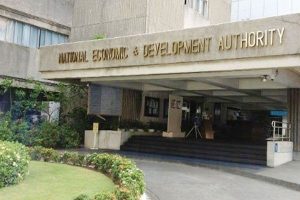NEDA expects to comply with 90-day deadline for PPP IRR

THE National Economic and Development Authority (NEDA) said it is working on two sets of implementing rules and regulations (IRR) at the moment, but expects to meet the 90-day deadline to issue the rules for the Public-Private Partnership (PPP) Code.
“We usually go by the deadline,” NEDA Undersecretary Rosemarie G. Edillon told reporters on the sidelines of an event last week.
“For sure, we will try to have (the IRR) issued earlier,” she said in a Viber message in response to a follow-up query Sunday.
NEDA is also currently working on the IRR for the Trabaho Para sa Bayan Act, which is targeted for release in early February.
On Dec. 5, President Ferdinand R. Marcos, Jr. signed into law the PPP Code of the Philippines, which aims to enhance the investment ecosystem and create a more stable policy environment for collaboration in high-impact infrastructure projects.
The PPP Governing Board, chaired by NEDA Secretary Arsenio M. Balisacan, is tasked to issue the Code’s IRR.
The PPP Code, which goes into the books as Republic Act No. 11966, amended the Build-Operate-Transfer (BOT) Law to create a unified legal framework for all PPPs at both national and local levels.
The law defines PPP as a contractual arrangement between the implementing agency and the private proponent for the financing, designing, constructing, operating, and maintaining of infrastructure or development projects which are typically provided for by the public sector and where each party shares in the risks.
The law covers all PPP arrangements, such as BOT variants, joint ventures, and toll operations agreements. PPP projects may also be financed partly from direct government appropriations or official development assistance.
As of Sept. 1, there were 104 PPP projects in the pipeline at an estimated cost of P2.521 trillion. Some 180 projects are being implemented worth P2.639 trillion, according to the Department of Finance.
Ms. Edillon said the NEDA will have to study the PPP Code before writing the IRR, ensure they have complete data, and fall in line with best practices in other countries.
In September, Mr. Marcos signed the Trabaho Para sa Bayan Act, which aims to boost the competitiveness of the workforce through upskilling and reskilling efforts.
The law establishes the Trabaho Para sa Bayan Inter-Agency Council, which will be headed by the NEDA secretary. It is tasked with drafting a master plan for employment generation and economic recovery, with three-year, six-year, and 10-year development timelines.
Meanwhile, NEDA is also working on a study on the establishment of the Knowledge, Innovation, Science and Technology (KIST) Park and Ecozones in state universities and colleges (SUCs).
Earlier in August, the Department of Science and Technology (DoST), the Philippine Economic Zone Authority (PEZA), and the Philippine Association of State Universities and Colleges (PASUC) signed a memorandum of understanding (MoU) for the creation of KIST Parks and Ecozones.
“Right now, they’re using the PEZA law. If you’re a PEZA (locator), a big percentage or 70% of what you produce has to be exported,” Ms. Edillon said.
She also said there are other restrictions for the KIST Park and Ecozones as employees are unable to work from home and production has to be done within the zone.
“We think it will not be a conducive environment for the knowledge and innovation part. So, we want to try and put in place a different policy framework,” she said.
There are 44 SUCs interested in establishing a KIST Park. Batangas State University launched its KIST Park on July 20, 2020. — Keisha B. Ta-asan




